Text

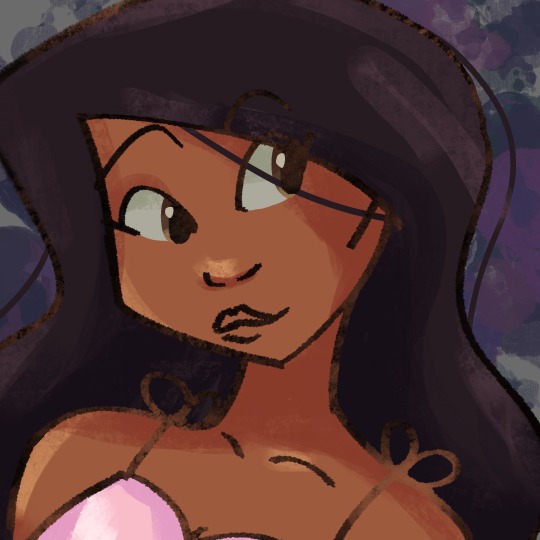



teenage 87 girls, ft my 87 jhanna :3
#pretty ladies#Mona is the best girl <3#tmnt 1987#tmnt mona lisa#tmnt lotus blossom#tmnt kala#buffy shellhammer#tmnt buffy#tmnt jhanna
68 notes
·
View notes
Text

I love these two so much<3
15 notes
·
View notes
Text

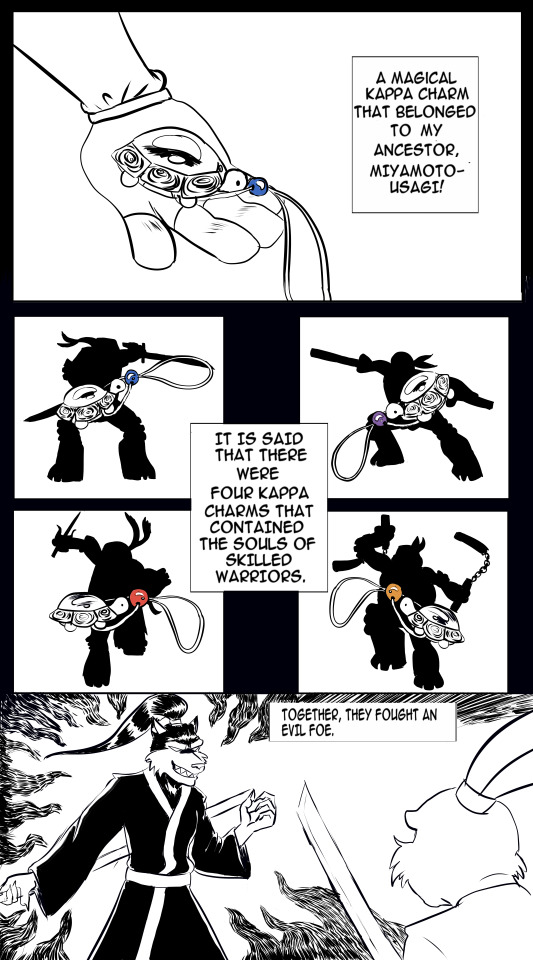


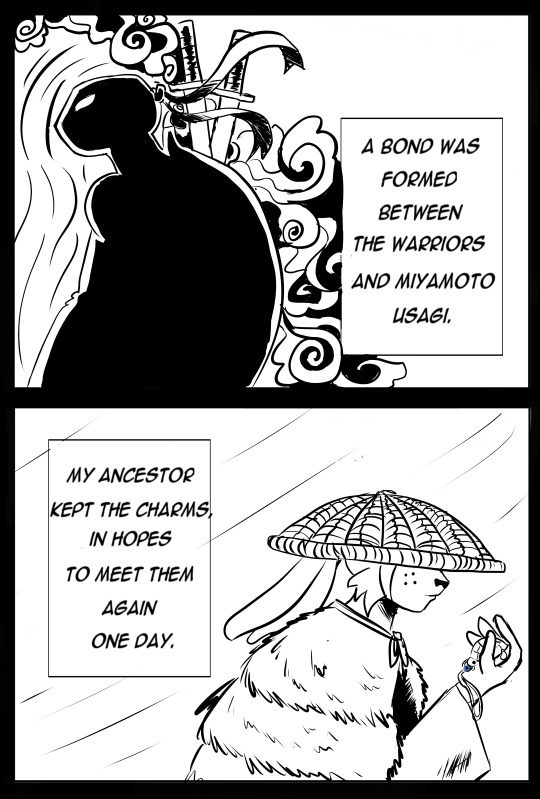

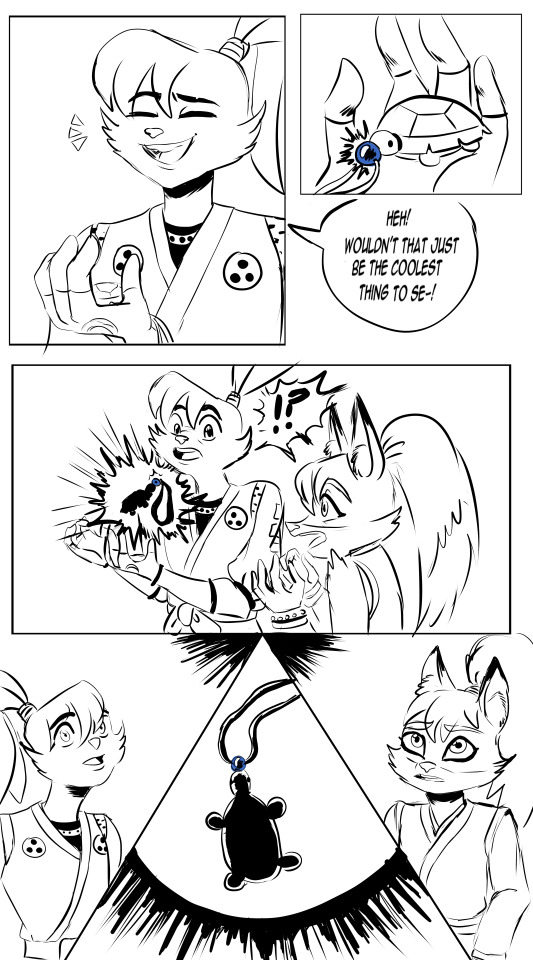
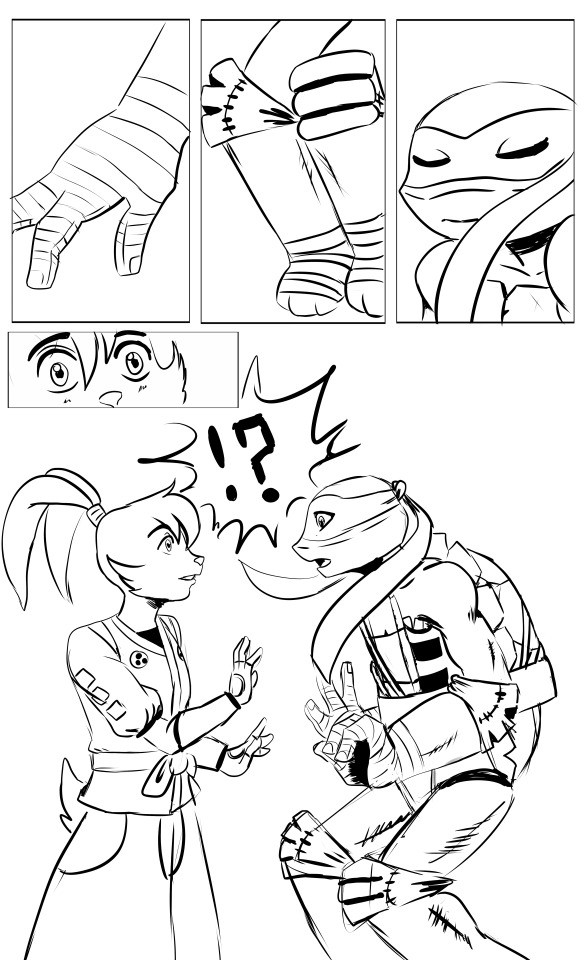
months ago @sapphiretanto asked me if I could draw a comic for her and I finally finished it today. I am so, so, so sorry that it took me this long. I hope you like it.
The charm can pull 2012 Leo into the past feudal Japan in another world, then the same can be said that he can go to futuristic Neo Edo.
#OMG OMG#YES YES PLEASE#I NEED MORE IF THIS#I NEED THIS AS A FANFIC OR SOMETHING-#Leo teaming up with Yuichi to find his brothers charms and get back home#tmnt 2012#usagi chronicles#yuichi usagi#tmnt leonardo#leoichi
173 notes
·
View notes
Note
the way raph angrily shouts booyakasha when shooting the newtraliser........ ending it all i can't take this 😭😭😭😭😭😭😭😭😭
season 5 is killing me man
Boi has never been closer to killing someone than in that moment😭😭which is saying a lot
#say what you want about season 5 but when it hits it hiiiiits—shout out to sean astin btw cuz omg that performance is just *chef's kiss*#<<< agreed#he was also very pissed when Dregg hurt Mona and when bishop insulted her#gotta protect babe#tmnt 2012#tmnt raphael
60 notes
·
View notes
Photo

forgot to post the updated version lol- redrew this becuz it needed a serious update and redo (it was old and messy and low res blaughdfkajh) and as mentioned before, and by popular demand, available now here and here!
2K notes
·
View notes
Note
Casey's kids also go to the farmhouse to visit Raph's kids?
Like for having sleepovers or just spending the holidays
Of course! Raph's kids and Casey's kids basically grew up together and are childhood friends. Nicholas and Shadow have known the Hamato kids basically their whole life. Often Nicholas would visit them at the farmhouse to hang out with Raph's sons and have sleepovers. Shadow would want to join in on the boys hyjinx rather than hang out with Raph's daughters.
#asks#answered#anonymous#TMNT next gen#tmnt future au#tmnt 2012#tmnt#teenage mutant ninja turtles#tmnt raphael#Casey jones#TMNT oc#FabTrash oc#oc: nicholas#oc: shadow
8 notes
·
View notes
Note
Now, how did Mona Lisa react to discovering her daughter was caught up in a love triangle?
Mona is not surprised her daughter Irrilia has multiple suitors. She is a beautiful young lady, and takes after her mother who also had many suitors when she was her age before she met her true love, Raphael.
Mona knows her daughter is a smart girl, and as long as she follows her heart she knows Irrilia will get through this difficult point in her romantic life and find her love.
#I'd also add that her and Sasuke have some tension but its blinded by their hatred for one another so it never goes anywhere#asks#answered#okapi77#tmnt next Gen#tmnt future au#fabtrash headcanons#tmnt headcanons#tmnt 2012#tmnt#teenage mutant ninja turtles#tmnt mona lisa#tmnt raphael#tmnt ramona#not my oc#tmnt Irrilia
7 notes
·
View notes
Text

Sorry not sorry 🐀
917 notes
·
View notes
Text

@lucatea held me at gunpoint to make this
721 notes
·
View notes
Text
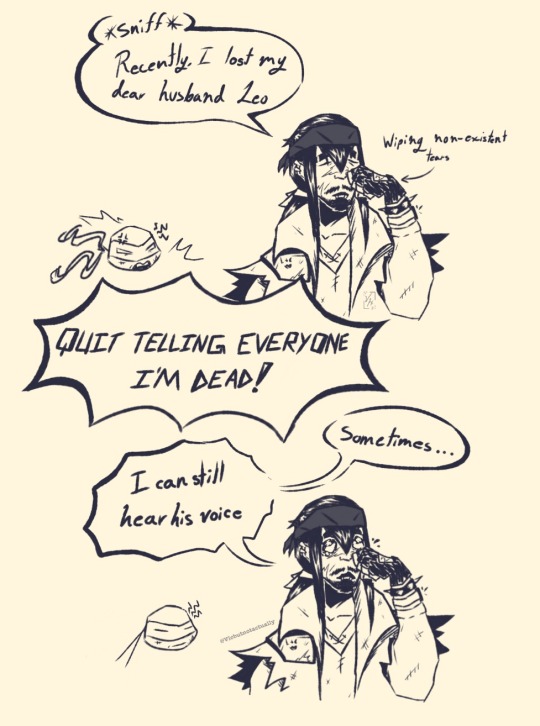
Ah yes, Old Casey Jones who tells everyone his husband died
75 notes
·
View notes
Text
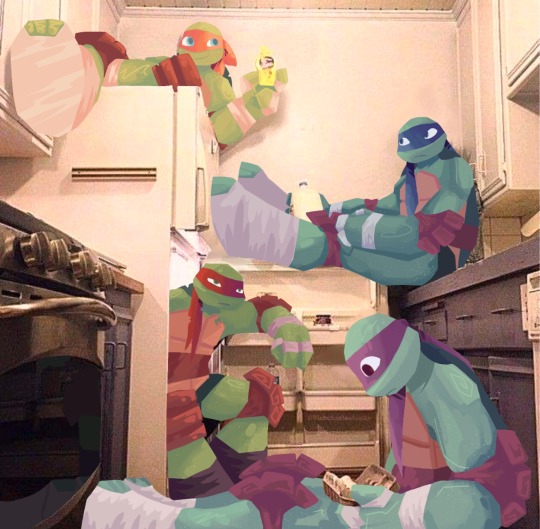



Some memes for my starved handful of followers
332 notes
·
View notes
Text

God help me I made this at 1 am. I don't care about the quality at this point. I made it because of the original that's under here:

215 notes
·
View notes
Note
How did Raph react when he found out that two people (or more) wanted to date his daughter?
Raph is still trying to comprehend the idea that his little girl is not so little anymore and is now grown up, doing her own thing and even dating.
Where has the time gone? He misses when she was still just a baby! 😭
#technically there’s a possible third#it’s okay Raph you still have one more daughter#but enjoy it while it last cause someone likes her too!#asks#answered#anonymous#tmnt 2012#tmnt#teenage mutant ninja turtles#tmnt raphael#not my oc#tmnt Irrilia#tmnt next Gen
11 notes
·
View notes
Text
Recarga🔋

73 notes
·
View notes
Note
I randomly remembered this headcannon I saw someone suggest. What if the reason Leatherhead tortured the ever living shell without the s out of Donnie's face was because he mistook his mask for pink? Like he thought the color looked similar to the Kraang's skin tone.
I think if that were to be the case, we can also add another idea that Leatherhead is colorblind and often mixes colors together. Just felt like sharing this.
lol that would be funny.
That or Donnie just have a very grabbable face
#asks#answered#my-name-is-Bunnyfoxy#tmnt 2012#tmnt#teenage mutant ninja turtles#leatherhead#tmnt donatello#tmnt headcanons
13 notes
·
View notes
Note
How would the Ramona kids feel about meeting the Bivian bunch ( my hyena and African dog couple hybrid kids from the wild 6 I'm working on
Henry: firstborn Same age as Thalos
Amilea: second born Same age as irillia
Emilio: Youngest Same age as sal
Bella: twin youngest same age as Frida
Max: baby of the group same age as Vincent
First thing they’d ask them is how is Henry the oldest and the same age as Thalos when Irrilia is supposed to be the same age as Amilea the second born, but Irrilia she’s older than Thalos
Math ain’t mathing here XD
#irrilia is the oldest#Thalos is the second born#birth order goes: Irrilia Thalos Sal Frida Vincent#asks#answered#cyberwombathero#tmnt 2012#tmnt#teenage mutant ninja turtles#tmnt next gen#Tmnt oc#not my oc#tmnt irillia#tmnt thalos
4 notes
·
View notes
Text
Disney's Wish
Look, Disney's Wish has been universally panned across the internet, and for good reason.
It’s just…kind of okay.
When we sit down to watch a Disney film—you know, from the company that dominated the animation industry from 1989 to (arguably) the mid 2010’s and defined the medium of animation for decades—we expect something magnificent. Now, I could sit here and tell you everything that I thought was wrong with Wish, but if you’re reading this review, then I imagine that you’ve already heard the most popular gripes from other users across the web. So, let me focus in:
The biggest problem with Wish—in fact, the only problem with Wish—is Magnifico.
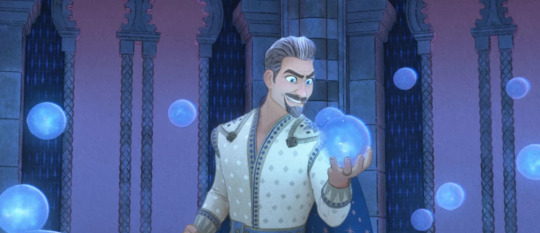
Whoa, that’s crazy! There’re so many things about Wish that could’ve been better! The original concept was stronger! The music was bad--
I hear you, I do. But stay with me here, okay? Take my hand. I studied under artists from the Disney renaissance. I teach an adapted model of Disney’s story pipeline at a University level. I spent a ridiculous amount of time getting degrees in this, and I am about to dissect this character and the narrative to a stupid degree.
First, we need to understand that a good story doesn’t start and end with what we see on the screen. Characters aren’t just fictional people; when used well, characters are tools the author uses (or in this case, the director) to convey their message to the audience. Each character’s struggle should in some way engage with the story’s message, and consequently, the story’s theme. Similarly, when we look at our protagonist and our antagonist, we should see their characters and their journeys reflected in one-another.
So, what went wrong between Asha & Magnifico in terms of narrative structure?
Act I
In Wish, we’re introduced to our hero not long into the runtime—Asha. She’s ambitious, caring, and community-oriented; in fact, Asha is truly introduced to the audience through her love of Rosas (in “Welcome to Rosas”). She’s surrounded by a colorful cast of friends who act as servants in the palace, furthering her connection with the idea of community but also telling us that she’s not of status, and then she makes her way to meet Magnifico for her chance to become his next apprentice.
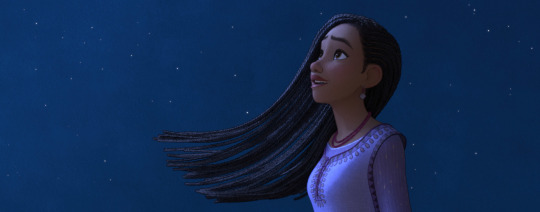
Quick aside: I'm not going to harp on Asha as a character in the context of Disney's overall canon. Almost every review I've seen covers her as a new addition to Disney's ever-growing repertoire of "Cute Quirky Heroines", and I think to be fair to Asha as an actor in the narrative, it serves her best to be weighed within the context of the story she's part of.
As Asha heads upstairs for her interview, we're introduced to the man of the hour: Magnifico. He lives in a tower high above the population of Rosas, immediately showing us how he differs from Asha; he’s disconnected from his community. He lives above them. He has status. While the broader context of the narrative wants us to believe that this also represents a sense of superiority, I would argue that isn’t what Magnifico’s introduction conveys; he's isolated.
Despite this distance, he does connect with Asha in “At All Costs”. For a moment, their goals and values align. In fact, they align so well that Magnifico sees Asha as someone who cares as much about Rosas as he does, and almost offers her the position.
… Until she asks him to grant Saba’s wish.
This is framed by the narrative as a misstep. The resonance between their ideals snaps immediately, and Magnifico says something along the line of “Wow. Most people wait at least a year before asking for something.”
This disappointment isn't played as coming from a place of power or superiority. He was excited by the idea of working with someone who had the same values as he did, who viewed Rosas in the same way he does, and then learns that Asha’s motivations at least partially stem from a place of personal gain.
Well, wait, is that really Asha's goal?
While it's not wholistically her goal, it's very explicitly stated & implied that getting Saba's wish granted is at least a part of it. The audience learns (through Asha's conversation with her friends before the interview) that every apprentice Magnifico has ever had gets not only their wish granted, but the wishes of their family, too! Asha doesn’t deny that this is a perk that she’s interested in, and I don't think this is a bad thing.
So, Is Asha’s commitment to Saba selfless, or selfish? I’m sure the director wanted it to seem selfless, wherein she believes her family member has waited long enough and deserves his wish granted, but we can’t ignore the broader context of Asha essentially trying to… skip the line.

Then, we get our first point of tension. Magnifico reveals his “true colors” in snapping at Asha, telling her that he “decides what people deserve”. This is supposed to be the great motivator, it’s meant to incite anger in the audience—after all, no one gets to decide what you deserve, right? But unfortunately for the integrity of the film and the audience's suspension of disbelief, at least part of Magnifico’s argument is a little too sound to ignore:
Some wishes are too vague and dangerous to grant. Now, there’s visual irony here; he says this after looking at a 100 old man playing the lute. The idea that something so innocuous could be dangerous is absurd, and the audience is meant to agree.
... But we’ve also seen plenty of other wishes that might be chaotic—flying on a rocket to space, anyone? The use of the word vague is important, too—this implies wording matters, and that a wish can be misinterpreted or evolve into something that is dangerous even if the original intent was innocuous. His reasoning for people forgetting their wish (protecting them from the sadness of being unable to attain their dreams) is much weaker, but still justifiable (in the way an antagonist’s flawed views can be justified). The film even introduces a facet of Magnifico’s backstory that implies he has personal experience with the grief of losing a dream (in the destruction of his home), but that thread is never touched on again.
What is the audience supposed to take from this encounter? If we’re looking at the director’s intent, I’d argue that we’ve been introduced to a well-meaning young girl and a king who’s locked away everyone’s greatest aspiration because he believes he deserves to have the power to decide who gets to be happy.
But what are we shown? Our heroine, backed by her friends, strives to be Magnifico’s apprentice because she loves the city but also would really like to see her family's wishes granted. When this request is denied and she loses the opportunity to be his apprentice, she deems Magnifico’s judgement unfair & thus begins her journey to free the dreams of Rosas’ people.
In fairness, Magnifico doesn’t exhibit sound judgement or kindness through this act of the film. He’s shown to be fickle, and once his composure cracks, he can be vindictive and sharp. He's not a good guy, but I'd argue he's not outright evil. He's just got the makings of a good villain, and those spikes of volatility do give us a foundation to work off of as he spirals, but as we’ll discuss in a bit, the foreshadowing established here isn’t used to the ends it implies.
While I was watching this film, I was sure Magnifico was going to be a redeemable villain. He can’t connect with people because he's sure they value what he provides more than they value him (as seen in “At All Costs” and the aftermath), and Asha’s asking for more was going to be framed as a mistake. His flaw was keeping his people too safe and never giving them the chance to sink or swim, and he's too far removed from his citizens to see that he is appreciated. Asha does identify this, and the culmination of her journey is giving people the right to choose their path, but the way Magnifico becomes the “true” villain and his motivations for doing so are strangely divorced from what we’re shown in Act I.
Act II:
His song, “This is the Thanks I Get!?” furthers the idea that Magnifico’s ire—and tipping point—is the fact that he thinks the people he’s built a kingdom for still want more. Over the course of this 3:14 song, we suddenly learn that Magnifico sends other people to help his community and doesn’t personally get involved (we never see this outside of this song), and that he’s incredibly vain/narcissistic (he's definitely a narcissist). I think feeling under-appreciated is actually a very strong motivation for Magnifico as a character-turning-villain, and it works very well. It’s justified based on what we’ve seen on screen so far: he feels under-appreciated (even though he’s decidedly not—the town adores him), he snaps and acts irrationally under stress (as seen with his outburst with Asha), and he’s frustrated that people seem to want more from him (again, as seen with his conversation with Asha in Act I).
But then… he opens the book.
Ah, the book. As an object on screen, we know that it's filled with ancient and evil magic, well-known to be cursed by every relevant character in the film, and kept well-secured under lock and key. But what does it stand for in the context of the narrative's structure? A quick path to power? We're never told that it has any redeeming qualities; Magnifico himself doesn't seem to know what he's looking for when he opens it. It feels... convenient.
I think it's also worth noting that he only turns to the book when he's alone; once again, the idea of connection and community rears it's ugly head! Earlier in the film, Amaya-- his wife-- is present and turns him away from taking that path. In her absence, he makes the wrong choice.
This decision could make sense; it contains powerful magic, and if it were framed in such a way that the people of Rosas were losing faith in Magnifico’s magic, as if what he can do might not be enough anymore after what they felt from Star, going for the book that we know contains spells that go above and beyond what he can already do would be logical. Along the lines of, “If they’re not happy with what I do for them, fine. I, ever the “martyr”, will do the unthinkable for you, because you want more.”

It would keeps with the idea that Magnifico believes he's still trying to help people, but his motivation has taken his self-imposed pity party and turned it into resentment and spite.
But, that’s not the case. Instead he talks about reversing that “light”, which has had no real negative or tangible consequences on Rosas. Everyone had a warm feeling for a few seconds. Again, it’s meant to paint him as a vain control freak, but… he hasn’t lost any power. The citizens of Rosas even assume the great showing of magic was Magnifico.
Act III
Then, we get to the consequences of opening the book (and perhaps my biggest qualm with this film). The book is established as being cursed. Magnifico knows it, Asha knows it, and Amaya—who is introduced as loyal-- knows it. The characters understand his behavior is a direct result of the book, and search for a way to save him. This is only the focus of the film for a few seconds, but if you think about it, the fact that his own wife cannot find a way to free him of the curse he’s been put under is unbelievably tragic. Worse still, upon discovering there is no way to reverse the curse, Magnifico—the king who built the city & “protected it” in his own flawed way for what seems to be centuries—is thrown out by his wife. You know, the wife who's stood loyal at his side for years?
It’s played for laughs, but there’s something unsettling about a character who’s clearly and explicitly under the influence of a malevolent entity being left… unsaved. If you follow the idea of Magnifico being disconnected from community being a driving force behind his arc, the end of the film sees him in a worse situation he was in at the start: truly, fully alone.
They bring in so many opportunities for Magnifico to be sympathetic and act as a foil for Asha; he’s jaded, she’s not. He’s overly cautious (even paranoid), she’s a risk-taker. He turns to power/magic at his lowest point, Asha turns to her friends at her lowest point. Because this dichotomy isn’t present, and Magnifico—who should be redeemable—isn’t, the film is so much weaker than it could’ve been. The lack of a strong core dynamic between the protagonist and antagonist echoes through every facet of the film from the music to the characterization to the pacing, and I believe if Magnifico had been more consistent, the film would’ve greatly improved across the board.
I mean, come on! Imagine if at the end of the film, Asha—who, if you remember, did resonate with Magnifico’s values at the start of the film—recognizes that he's twisted his original ideals and urges him to see the value in the people he’s helped, in their ingenuity, in their gratitude, & that what he was able to do before was enough. Going further, asking what his wish is or was—likely something he’s never been asked— and showing empathy! We’d come full circle to the start of the film where Asha asks him to grant her wish.
Pushing that further, if Magnifico’s wish is to see Rosas flourish or to be a good/beloved king, he'd have the the opportunity to see the value in failing and how pursuing the dream is its own complex and valuable journey, and how not even he is perfect.
The curse and the book (which, for the purposes of this adjustment, would need to be established as representing the idea of stepping on others to further your own goals/the fast way to success), then serve as the final antagonist, that same curse taking root in the people of Rosas who’ve had their dreams destroyed, and Asha works with the community to quell it. Asha’s learned her lesson, so has Magnifico, and the true source of evil in the film—the book—is handled independently. Magnifico steps back from his role as King, Amaya still ends up as Queen, and Asha takes her place as the new wish-granter.
This route could even give us the true “Disney villain” everyone’s craving; giving the book sentience and having it lure Magnifico in during “This is the Thanks I Get!?” leaves it as its own chaotic evil entity.
All in all, Magnifico's introduction paved a road to redemption that the rest of the film aggressively refused to deliver on, instead doubling down on weaker motivations that seem to appear out of thin air. Once the audience thinks, hey, that bad guy might have a point, the protagonist has to do a little more heavy lifting to convince us they're wrong.

Look at the big-bad-greats from Disney's library. There isn't a point in the Lion King where we pause and think, "Wait a second, maybe Scar should be the guy who rules the Pridelands." Ursula from the Little Mermaid, though motivated by her banishment from King Triton's Seas, never seems to be the right gal for the throne. Maybe Maleficent doesn't get invited to the princess's birthday party, but we don't watch her curse a baby and think, Yeah, go curse that baby, that's a reasonable response to getting left out.
What do they all have in common? Their motivation is simple, their goal is clear, and they don't care who they hurt in pursuit of what they want.
Magnifico simply doesn't fall into that category. He's motivated by the idea of losing power, which is never a clear or impactful threat. His goal at the start seems to be to protect Rosas, then it turns into protecting his own power, and then-- once he's corrupted-- he wants to capture Star. The problem is, there's no objective to put this power toward. Power for power's sake is useless. Scar craves power because he feels robbed of status. Ursula believes the throne is rightfully hers. Maleficent wanted to make a statement. Magnifico... well, I'm not really sure.
1K notes
·
View notes